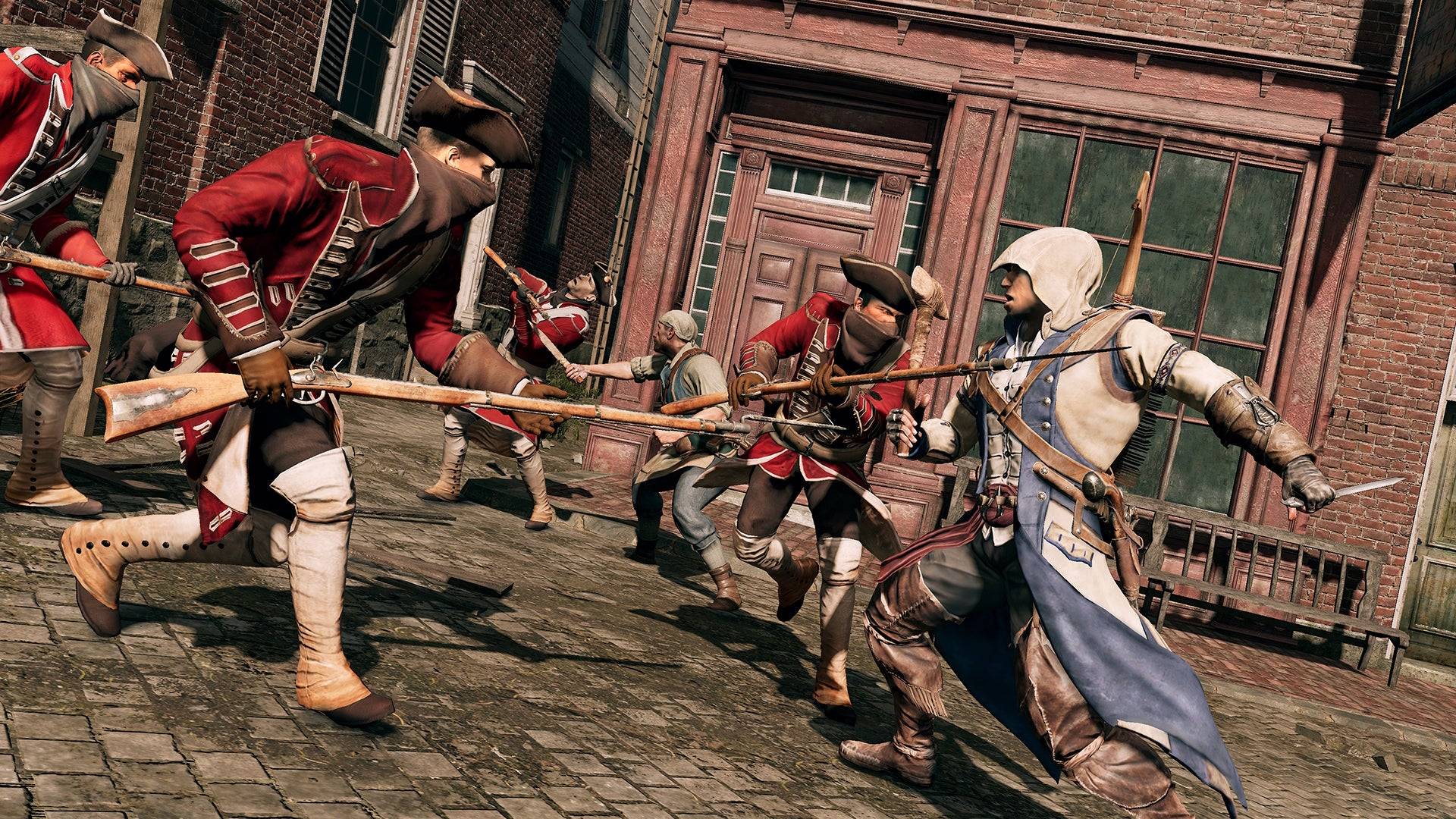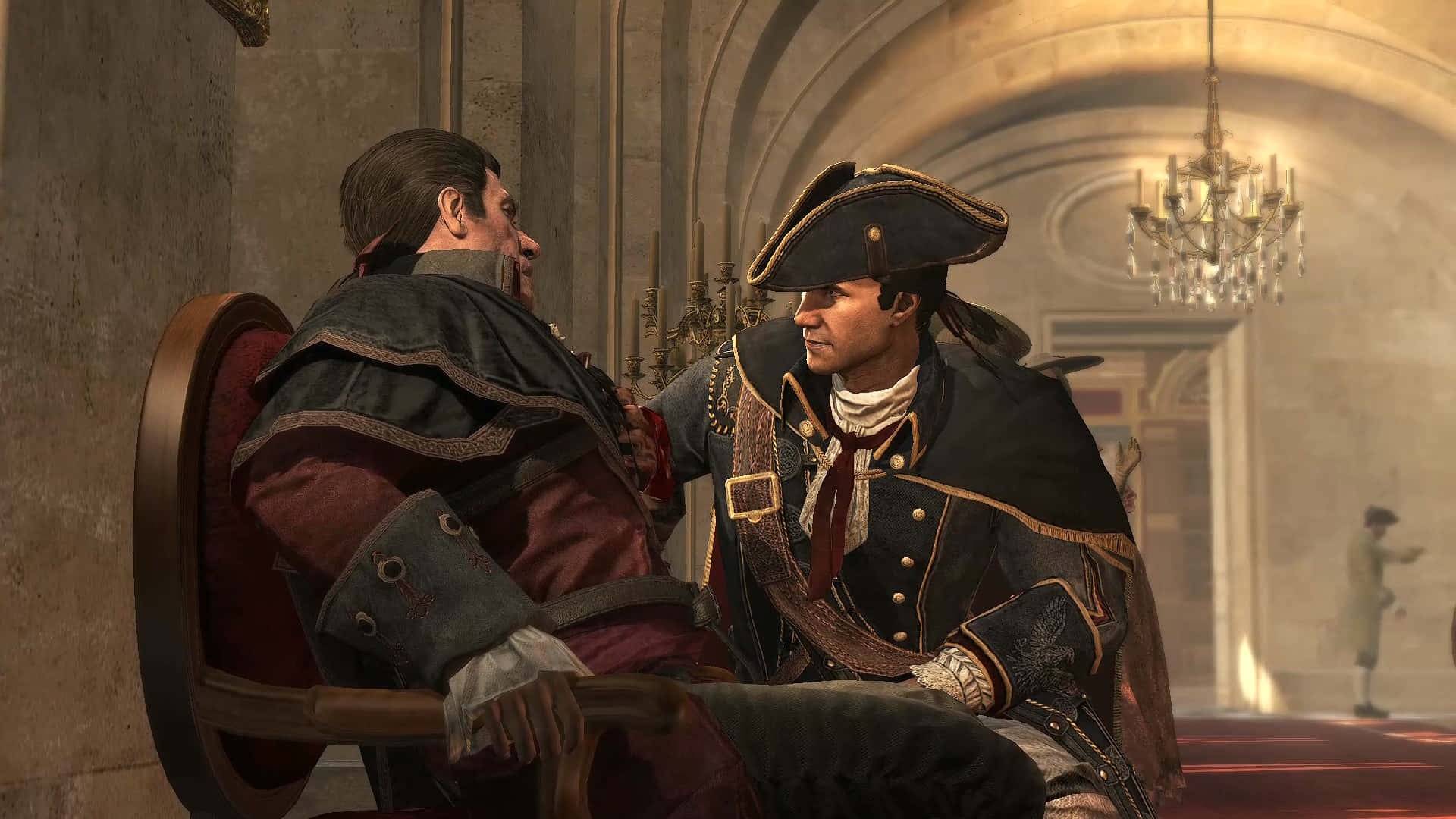Assassin's Creed 2 and 3: The Pinnacle of Series Writing
One of the most unforgettable moments in the entire Assassin’s Creed series occurs early in Assassin’s Creed 3, when Haytham Kenway completes the task of assembling his team of supposed assassins in the New World. The twist comes when players, initially led to believe they are following a hero, discover the truth upon hearing Haytham's utterance of the Templar creed, "May the Father of Understanding guide us." Haytham's use of a hidden blade and his charismatic demeanor, reminiscent of Ezio Auditore, had convincingly portrayed him as a protagonist up until this point, making the revelation that much more impactful.
This surprising narrative twist embodies the pinnacle of Assassin’s Creed’s storytelling potential. The original game laid the groundwork with its intriguing concept of tracking, understanding, and eliminating targets, but it struggled with a lack of personality in both the protagonist Altaïr and his targets. Assassin’s Creed 2 improved upon this by introducing the iconic Ezio, yet still fell short in developing his adversaries, such as the underwhelming Cesare Borgia in Assassin’s Creed: Brotherhood. It wasn't until Assassin’s Creed 3, set against the backdrop of the American Revolution, that Ubisoft truly dedicated effort to fleshing out both the hunter and the hunted. This approach created a seamless narrative flow from setup to payoff, striking a delicate balance between gameplay and story that the series has yet to replicate.
 The underappreciated AC3 features the series' best balance of gameplay and story. | Image credit: Ubisoft
The underappreciated AC3 features the series' best balance of gameplay and story. | Image credit: Ubisoft
Despite the positive reception of the current RPG-focused era of the series, there's a consensus among players and critics that Assassin’s Creed is experiencing a decline. Debates swirl around potential causes, such as the increasingly fantastical elements like battling gods like Anubis and Fenrir, or the introduction of diverse romance options and the use of historical figures like Yasuke in Assassin’s Creed Shadows. However, I believe the root of the issue lies in the series' gradual shift away from character-driven narratives, now overshadowed by expansive sandbox environments.
Over time, Assassin’s Creed has evolved from its action-adventure roots to incorporate RPG and live service elements, including dialogue trees, XP-based leveling systems, loot boxes, microtransactions, and gear customization. Yet, as the games have grown larger, they've also felt increasingly hollow, not just in their repetitive side-missions but also in their core storytelling.
While a game like Assassin’s Creed Odyssey boasts more content than its predecessor, Assassin’s Creed 2, much of it feels superficial and underdeveloped. The introduction of player choice in dialogue and actions, intended to enhance immersion, often has the opposite effect. As scripts expand to accommodate various scenarios, they lose the polish and depth found in the more focused narratives of the earlier action-adventure era, which allowed for well-defined characters unaffected by the whims of player choice.
This shift has resulted in interactions that feel more like dealing with generic NPCs than engaging with complex historical figures, a stark contrast to the rich storytelling of the Xbox 360/PS3 era. Iconic moments, such as Ezio’s defiant speech after defeating Savonarola or Haytham's poignant soliloquy upon his death at the hands of his son Connor, showcase the high-quality writing of that period:
“Don't think I have any intention of caressing your cheek and saying I was wrong. I will not weep and wonder what might have been. I'm sure you understand. Still, I'm proud of you in a way. You have shown great conviction. Strength. Courage. All noble qualities. I should have killed you long ago.”
 Haytham Kenway is one of Assassin's Creed's most richly-realized villains. | Image credit: Ubisoft
Haytham Kenway is one of Assassin's Creed's most richly-realized villains. | Image credit: Ubisoft
The narrative quality has also declined in other ways. The modern games often oversimplify the moral dichotomy between Assassins and Templars, whereas earlier entries blurred these lines. In Assassin’s Creed 3, each fallen Templar challenges Connor's beliefs, with characters like William Johnson suggesting the Templars could have prevented the Native American genocide, or Thomas Hickey dismissing the Assassins' mission as unattainable. Benjamin Church's perspective on the British as victims adds further complexity. Haytham's attempts to undermine Connor's trust in George Washington, later revealed to have ordered the burning of Connor's village, leave players with more questions than answers, strengthening the narrative.
Reflecting on the series' history, the enduring appeal of the Jesper Kyd-composed "Ezio’s Family" from Assassin’s Creed 2, which became the series' official theme, highlights the character-driven focus of the PS3 era. These games, especially Assassin’s Creed 2 and Assassin’s Creed 3, centered on personal narratives, such as Ezio's trauma over his family's loss. While I appreciate the expansive worldbuilding and graphical advancements of the current Assassin’s Creed games, I hope the franchise will return to crafting the tightly focused, character-driven stories that initially captivated fans. Unfortunately, in an industry increasingly favoring sprawling sandboxes and live service models, such a return may not align with "good business."
-
Nintendo has dropped a mysterious animated short without any context, sparking fan theories about whether it teases the upcoming Super Mario Galaxy movie or hints at a new Pikmin game.Titled "Close to You," the nearly four-minute, dialogue-free animaAuthor : Sarah Feb 22,2026
-
Build A Rocket Boy has initiated redundancy procedures following the troubled release of MindsEye, potentially impacting more than 100 employees, according to studio sources speaking with IGN.An anonymous insider revealed that while the exact numberAuthor : Sarah Feb 21,2026
- HoYo Fest 2025: Fresh Updates on Comeback
- Mastering Two-Handed Weapons in Elden Ring: A Guide
- Ultimate Guide to Shinigami Progression in Hollow Era
- Roblox Simulator Codes: Unlock Exclusive Rewards!
- Wuthering Waves: Uncover the Secrets of Whisperwind Haven's Palette
- Top 25 Palworld Mods to Enhance Your Game





















